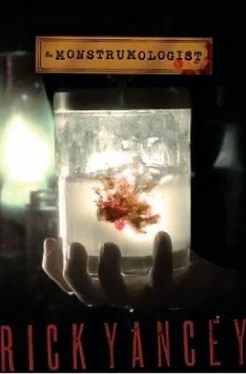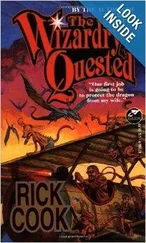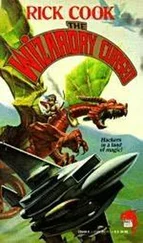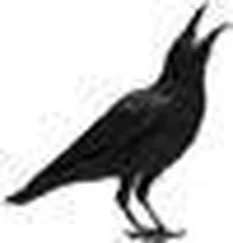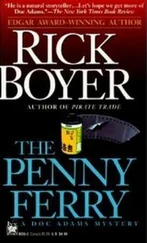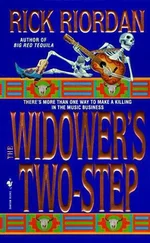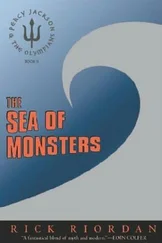“With orders from the War Department-from Secretary Stanton himself!”
“No, it wasn’t Stanton.”
“It most certainly was Stanton!”
“Then it couldn’t have been the spring of’61, Missus,” said Flanagan. “ Stanton wasn’t made secretary till January of’62.”
“Don’t tell me, Mr. Flanagan. I saw the orders myself.”
“Why would undercover men for the government show you, a grocer’s wife, their orders?”
“What did they want?” I asked. The year (or years) in question nearly coincided with the mission to Benin. Could it have been mere coincidence, the proximity of the two events, the visit from the detectives on behalf of the Union, and the sailing of the Feronia but two years later? Had the government somehow learned of the elder Warthrop’s plan to bring Anthropophagi to America? My heart began to race, for it seemed that this serendipitous encounter might provide the key to unlocking the riddle plaguing the doctor, the answer to the anguished Why? at the dying captain’s bedside. What would he think if I returned with the answer to that conundrum, after intimating that I had little between my ears; that I was, in essence, a silly, stupid child who could not answer a simple question without becoming befuddled and tongue-tied? How much would my stature grow in his eyes! I might prove myself truly “indispensable.”
“They wanted to know if he was a true Union man, which he was, through and through,” replied Flanagan before his agitated wife could. “And it really wasn’t about him they were asking, if you remember, Missus. It was those two Canadian gentlemen… can’t recall their names now, but it’s been nigh twenty-six years.”
“ Slidell and Mason,” she snapped. “And they weren’t Canadian, sir. Rebel spies is what they were.”
“The Pinkerton men never said as much,” he indicated to me with a wink.
“Both were seen at that house,” she said. “That house on Harrington Lane. More than once.”
“Doesn’t prove anything about Warthrop,” he argued.
“It proves he associated with agitators and traitors,” she shouted back. “It proves he was a sympathizer.”
“Well, you may think so, Missus, and say so, like now, like everyone did back then, but it doesn’t necessarily make it so. The Pinkertons left town, and Dr. Warthrop stayed, didn’t he? If they had proof of anything, they’d’ve carted him away. Right? Now you go on about this man-this good man who never did harm to anyone that I know of-but that’s all it is. Just going on. It isn’t right, Missus, speaking ill of the dead.”
“He was a rebel sympathizer!” she insisted. My ears had begun to ring from all her shouting. “He was different after the war, and you know it, Mr. Flanagan. Holed up in that house for weeks at a time, and when he did come out, moped around town like someone who’s lost his best friend. Never so much as a ‘how do you do’ crossed his lips, even when you passed right by him on the street, like he’d been dumbstruck, like a man whose heart’s been broken.”
“That may be so, Wife,” conceded Flanagan with a heavy sigh. “But you can’t say it was because of the war. A man’s heart is a complicated thing, a little less so than a woman’s, I’ll admit, but complicated it still is. Perhaps something did break it, as you say, but you can’t say what it was that broke it.”
I could not say, either, but thought I had a good idea: By the war’s end, Alistair Warthrop’s hands were stained with blood. Not blood spilled upon the battlefield but poured out by the gallon aboard the Feronia -that blood, and the blood belonging to all the future victims of the monsters he’d worked so tirelessly to bring to our soil, all the victims sacrificed upon the altar of his “philosophy.”
I found the doctor in his study, sitting in his favorite chair by the window. The blinds were drawn and the room quite dark; I almost missed him when I glanced inside. I had looked for him first in the basement and, finding nothing but overturned boxes and files strewn upon his worktable, checked the library next, which I found in a similar state of disarray, books thrown from the shelves, old newspapers and periodicals scattered pell-mell upon the floor. The study had not fared much better than the library; the contents of every drawer and cabinet lay in jumbled piles on every available surface. The entire house appeared to have been ransacked by bandits.
“Will Henry,” he said. He sounded weary beyond words. “I hope you fared better in your quest than I have in mine.”
“Yes, sir,” I replied breathlessly. “I would have been back sooner, but I forgot to stop by the baker’s, and I know how much you like his raspberry scones, so I went back. Got the last one, sir.”
“Scones?”
“Yes, sir. And I stopped by the butcher’s, too, and Mr. Flanagan’s. He sends his regards, sir.”
“Why are you gasping like that? Are you sick?”
“No, sir. I ran home, sir.”
“You ran? Why? Were you chased?”
“It was something Mrs. Flanagan said.” I was near to bursting. His melancholy would soon be swept away by my intelligence, I was certain.
He grunted. “Something about me no doubt. You should not talk to that woman, Will Henry. Talking to women in general is dangerous, but with that one it is a particular hazard.”
“It wasn’t about you, sir, at least not the important part. It was about your father.”
“My father?”
I told him everything in a breathless rush, of Slidell and Mason and the Pinkerton detectives’ inquiries around town (confirmed by Noonan the butcher and Tanner the baker), of the generally held belief that his father had been a Confederate sympathizer, of his father’s hermetic and heavy-hearted reaction to the South’s fall, all of which coincided with the expedition of the Feronia . The doctor interrupted only once, to have me repeat the names of the men with whom his father was accused of associating; otherwise he listened with unchanging expression, impassively studying me over his folded hands. I waited with bated breath upon the conclusion of my tale, sure he would leap from his chair, throw his arms around me, and bless me for untying the Gordian knot.
Instead, much to my chagrin, he shook his head and said softly, “Is that it? Is that why you rushed here, to tell me this?”
“Did you already know?” I was crestfallen.
“My father was guilty of many things,” he said, “but treason was not one of them. It is possible he met with these men, and it is also possible their errand was of a seditious nature. Perhaps they had some insidious purpose in mind-his peculiar calling was not unknown in certain circles-but any scheme they proposed he would have rejected out of hand.”
“But how can you know that, sir? You weren’t living here.”
He frowned at me. “How would you know where I was living?”
I dropped my head to avoid the intensity of his glare.
“You told me he sent you away to school during the war.”
“I don’t recall telling you that, Will Henry.”
Of course, he had not; I had deduced it from the letter I had purloined from the old trunk. But some lies are borne of necessity.
“It was a long time ago,” I offered meekly.
“Well, it must have been, for I have no memory of it. At any rate, the two events being proximate does not mean one is related to the other, Will Henry.”
“But it could have something to do with it,” I insisted. I was determined to impress him with the elegance of my reason. “If they were Confederate spies, he wouldn’t have told anyone or left any record of his contract with Captain Varner. It’s why you can’t find anything, sir! And it could explain why he wanted more than one of the things brought back. You said they couldn’t have been for study, so what were they for? Maybe they weren’t for your father at all, but for them , Slidell and Mason. Maybe they wanted the Anthropophagi, Doctor!”
Читать дальше
